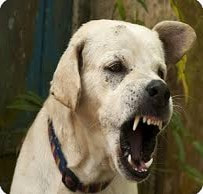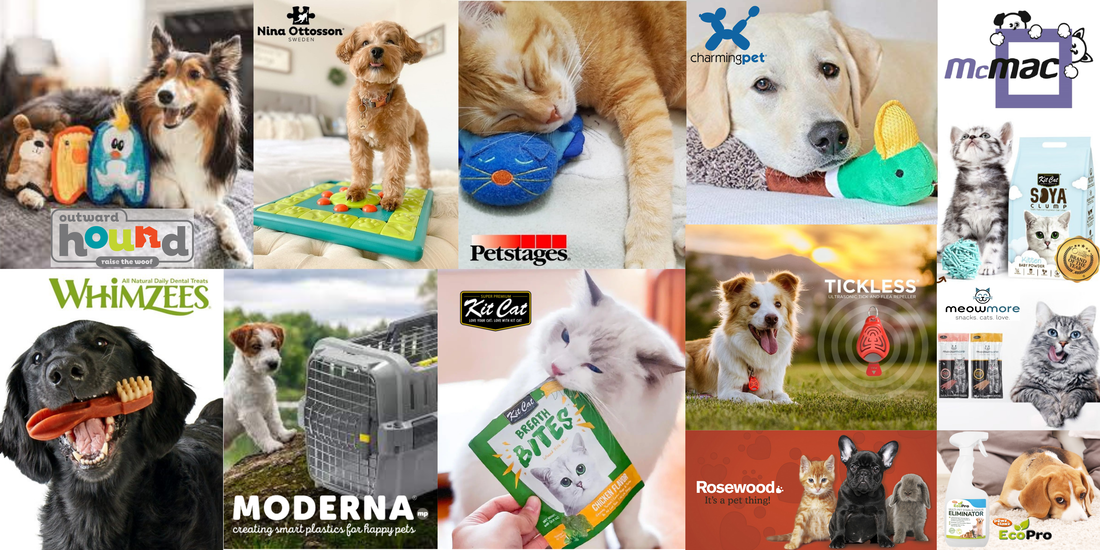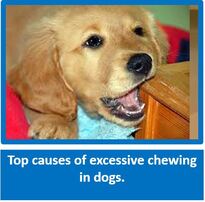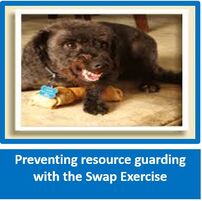Aggression in dogs towards family and friends
Scotty Valadao - Canine Behaviourist and TTouch Prac - www.friendsofthedog.co.za
Scotty Valadao - Canine Behaviourist and TTouch Prac - www.friendsofthedog.co.za

Although none of us like to think about this aspect of our dogs, aggression in dogs is very real, and when this is targeted towards members of the family and people that are familiar to the dog, you are facing a very dangerous situation.
Some people think that a dog is only being really aggressive when it nips or bites, and do not realize that any behaviour from their dogs which includes, lifting its lip, snarling, aggressive barking, hard staring eyes, growling, lunging as if to bite, ears back, flat against the head etc, must be taken seriously and dealt with as soon as possible. Some people have punished their dogs for growling at them - worst thing you can do - you are doing away with an early warning from the dog that things are not as they should be, and the next time, the dog may just bite, as the growl was punished and did not have the desired effect.
With all cases of aggression, the very first step is to have the dog fully examined by a vet to ensure that there are no physical factors that are contributing to the aggressive behaviour, otherwise nothing done from the behaviour aspect will work effectively. The vet may suggest that the dog be put on medication, and your next step is to find our why the behaviour is occurring - there is always a reason, even though it may not be initially recognized by ourselves. Aggression should always be dealt with by a canine professional that is experienced in it, and that only uses positive reinforcement methods.
Why do dogs become aggressive to people they know or are familiar with?
There are multiple reasons why some dogs are more prone to exhibit aggression than others, and we find that the following are the most common:-
What can be done to prevent aggressive behaviour?
As long as the biting has not yet become severe, and any underlying physical concerns have been dealt with, and there are no children involved, then the dog, more often than not, can be helped - especially If any type of resource guarding or fear, is the motivation for the aggression.
Helping a dog with aggression must be done by a canine behaviourist that is fully qualified and experienced in handling aggression. There will be a large amount of work for the owner to do, and consistency and liaising with the behaviourist constantly will be required. There are also no overnight 'fixes'- changing this behaviour can take time and patience.
It may be necessary for the dog to be desensitized to a muzzle such as the Baskerville Ultra, depending on the circumstances. We would definitely recommend that TTouch be brought in as one of the modifications to help the dog.
Even if the aggression is changed, one always has to remember that any dog that has resorted to aggression, can do so again - especially in circumstances where it feels threatened, over stressed or fearful. While not labelling the dog as aggressive, we have to be aware that a dog that has been aggressive towards family and familiars, can resort to this behaviour in future. Due to this it is very important for the owner to have an excellent understanding of their own dog's body language, and the triggers that may result in aggression. The modifications that the behaviourist has brought in, must become part of the dogs life and be strictly adhered too.
Prevention
Some people think that a dog is only being really aggressive when it nips or bites, and do not realize that any behaviour from their dogs which includes, lifting its lip, snarling, aggressive barking, hard staring eyes, growling, lunging as if to bite, ears back, flat against the head etc, must be taken seriously and dealt with as soon as possible. Some people have punished their dogs for growling at them - worst thing you can do - you are doing away with an early warning from the dog that things are not as they should be, and the next time, the dog may just bite, as the growl was punished and did not have the desired effect.
With all cases of aggression, the very first step is to have the dog fully examined by a vet to ensure that there are no physical factors that are contributing to the aggressive behaviour, otherwise nothing done from the behaviour aspect will work effectively. The vet may suggest that the dog be put on medication, and your next step is to find our why the behaviour is occurring - there is always a reason, even though it may not be initially recognized by ourselves. Aggression should always be dealt with by a canine professional that is experienced in it, and that only uses positive reinforcement methods.
Why do dogs become aggressive to people they know or are familiar with?
There are multiple reasons why some dogs are more prone to exhibit aggression than others, and we find that the following are the most common:-
- Genetic - puppy farming or irresponsible breeder, where no consideration as to the dogs character and behaviour flaws are taken into account. This is especially important when one is looking at any of the Bullie, Guarding and stand-offish breeds.
- Irresponsible Breeding - especially when taken away from mother and siblings too young - never adopt a pup younger than 8 weeks of age.
- Fear Behaviour - when a dog feels that it is being threatened, it can very often result in aggression. We do find that pups adopted at around 5 - 6 weeks are more prone to this behaviour, especially those that did not attend puppy school.
- No puppy school. The period up to 16/18 weeks in a dogs life is a crucial one and where a solid social foundation is formed. If the pup has been adopted before the 8 week period, plus no puppy training, the chances of behaviour problems intensify.
- No early training to avoid reasons why aggression often happens i.e. resource guarding of food, toys, object, pieces of furniture and people.
- Behaviour has gradually developed. Very often there are early signs of the behaviour and the owner has not realized just how serious it could become, as they are not experienced in dogs body language and may have misinterpreted why the dog is being aggressive.
- The behaviour is being constantly reinforced - the dog was aggressive and it worked, plus it is probably getting attention from the owner by way of shouting and/or smacking. Attention to a dog is attention, regardless negative or positive.
- One event learning - where the dog had a bad experience with a person that came to the home - often a child in the age region of 10 - 16 years, who may have teased the dog. It could also be that the dog was unintentionally hurt by a toddler or young child.
- Pain - remember that dogs do not always show pain, and the owner may not be aware that there is pain being experienced.
- Harsh training methods - very common. The dog may be a puller and the owner has put the dog in a prong or shock collar - it is not uncommon that the dog will suddenly lash out at the owner, and if not the owner, another person.
- Abuse - any form of physical abuse can result in aggression. The dog may not show aggression towards the abuser, but may lash out towards somebody else.
- Owner not recognized as being higher in the combined human/canine social structure and dog does not listen too, or respect a member/s of the family, and often does things its way instead.
- Where one member of the family thinks that the dogs initial aggressive behaviour towards a spouse for example, is funny, and inadvertently reinforces the behaviour with their reactions. The most common examples we see of this is that the dog objects is the male is affectionate towards the female, and some dogs will try to prevent the partner coming onto the bed.
- Some medical conditions and after-effects of medical procedures can also cause aggression as can some medications.
What can be done to prevent aggressive behaviour?
As long as the biting has not yet become severe, and any underlying physical concerns have been dealt with, and there are no children involved, then the dog, more often than not, can be helped - especially If any type of resource guarding or fear, is the motivation for the aggression.
Helping a dog with aggression must be done by a canine behaviourist that is fully qualified and experienced in handling aggression. There will be a large amount of work for the owner to do, and consistency and liaising with the behaviourist constantly will be required. There are also no overnight 'fixes'- changing this behaviour can take time and patience.
It may be necessary for the dog to be desensitized to a muzzle such as the Baskerville Ultra, depending on the circumstances. We would definitely recommend that TTouch be brought in as one of the modifications to help the dog.
Even if the aggression is changed, one always has to remember that any dog that has resorted to aggression, can do so again - especially in circumstances where it feels threatened, over stressed or fearful. While not labelling the dog as aggressive, we have to be aware that a dog that has been aggressive towards family and familiars, can resort to this behaviour in future. Due to this it is very important for the owner to have an excellent understanding of their own dog's body language, and the triggers that may result in aggression. The modifications that the behaviourist has brought in, must become part of the dogs life and be strictly adhered too.
Prevention
- Avoid the fighting, guarding and stand-offish breeds
- Never purchase from places such as junk mail, pet shops, people selling pups in the street, breeders that are not registered with KUSA etc.
- If getting from a breeder, get from the best breeder around. Ask to see both the mother and father and interact with at least the mother - the father may not be present - they carry the genes and you can see if friendly.
- If you are getting the pup from a shelter, if the mother is there, interact with her as well.
- Spend time interacting with the puppy for a good while, to observe its normal behaviour. You want too, at all costs, avoid taking the pushiest puppy in the litter, and also the one that appears to be fearful.
- Don't take on a pup until 8 weeks of age.
- Puppy school and further training/socialization are needed.
- Bring in the basic House Rules/Training so that you act in a fashion the dog understands, and it knows what you will and will not tolerate.
- Practice positive training methods..
- NEVER use physical punishment
- Avoid the use of harsh equipment.
- Sterilize at 6 months of age. When dogs reach the adolescent period of approximately 8-9 months of age, reactive behaviour can occur. This is less likely to occur if your male is sterilized already.
- If you have any early signs of aggression, get in a behaviourist immediately.





